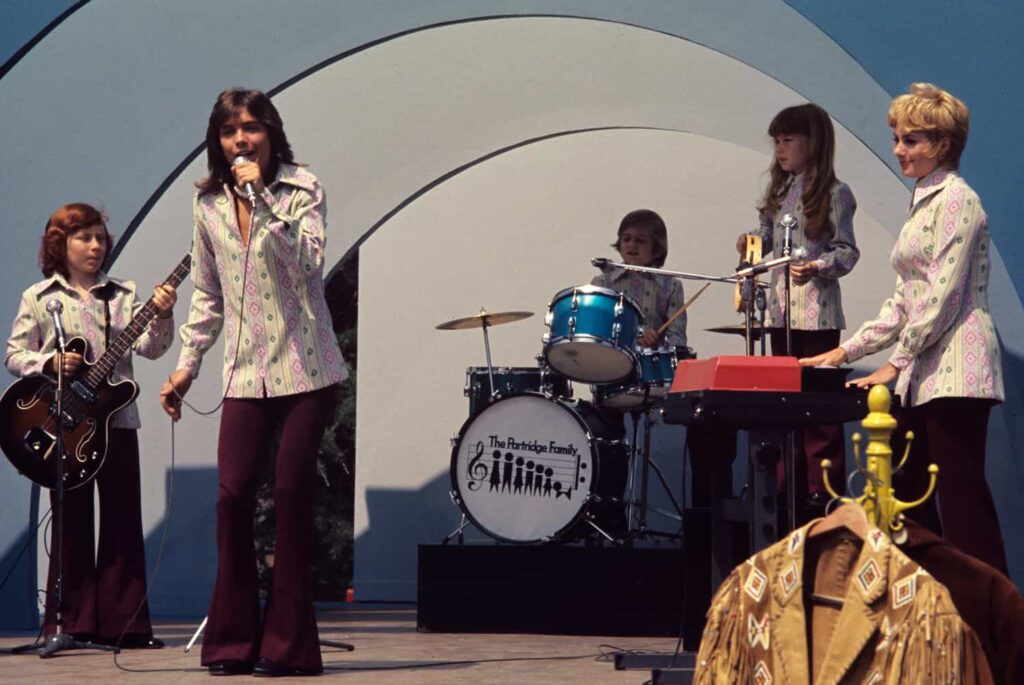
When Bubblegum Pop Held a Mirror to Adolescent Yearning: A Look Back at “I Think I Love You”
A simple, yet profoundly resonant exploration of that first, dizzying rush of romantic uncertainty, “I Think I Love You” captured the hearts of a generation with its infectious melody and relatable lyrics. Released in 1970, this quintessential bubblegum pop anthem, performed by The Partridge Family, skyrocketed to the number one spot on the Billboard Hot 100, where it remained for three weeks. The song, featured on the group’s debut album, “The Partridge Family Album,” became an instant classic, a time capsule of youthful infatuation that still resonates today.
Now, let’s peel back the layers of this seemingly simple pop confection. While the song’s sugary exterior might suggest a fleeting, manufactured hit, the reality is far more nuanced. The genesis of “I Think I Love You” lies in the songwriting prowess of Tony Romeo, who crafted a tune that perfectly encapsulated the awkward, exhilarating dance of teenage romance. The narrative unfolds with a charming vulnerability, as the singer grapples with the burgeoning feelings that threaten to overwhelm them. “I think I love you, so what am I so afraid of?” the lyrics pose, a question that echoed the sentiments of countless young listeners navigating the turbulent waters of first love.
The story behind The Partridge Family itself adds another layer of intrigue. The television sitcom of the same name, which aired from 1970 to 1974, served as the platform for the musical group. Featuring Shirley Jones as the widowed mother and her five musically inclined children, played by David Cassidy, Susan Dey, Danny Bonaduce, Suzanne Crough, and Brian Forster, the show became a cultural phenomenon. While Jones and Cassidy provided the lead vocals, the other cast members often contributed backing vocals and instrumental accompaniment. However, the musical backbone of the group’s recordings often included studio musicians, a common practice in the era of manufactured pop acts. This practice, while sometimes criticized, allowed for the creation of polished, radio-friendly hits that resonated with a massive audience.
The impact of “I Think I Love You” transcended its chart-topping success. It became an anthem for a generation experiencing the pangs of first love, a soundtrack to countless school dances and teenage crushes. The song’s enduring appeal lies in its ability to capture the universal experience of romantic uncertainty, the delicate balance between hope and fear that accompanies the realization of burgeoning feelings. The melody, simple yet irresistible, remains etched in the collective memory of those who grew up with it, a nostalgic reminder of a more innocent time.
For those of us who remember the early 1970s, The Partridge Family was more than just a television show or a musical group; it was a cultural touchstone. The image of David Cassidy, with his feathered hair and heartthrob smile, graced countless magazine covers and bedroom walls. The infectious optimism of “I Think I Love You” mirrored the hopeful spirit of the era, a time when the world seemed full of possibilities. In an age before the internet and social media, music held a unique power to connect with young people, to articulate their emotions and experiences. “I Think I Love You” served that purpose admirably, leaving an indelible mark on the landscape of popular music. The song remains a testament to the power of a simple melody and relatable lyrics to capture the essence of a generation, a sweet, nostalgic echo of youthful yearning that continues to resonate across the decades.